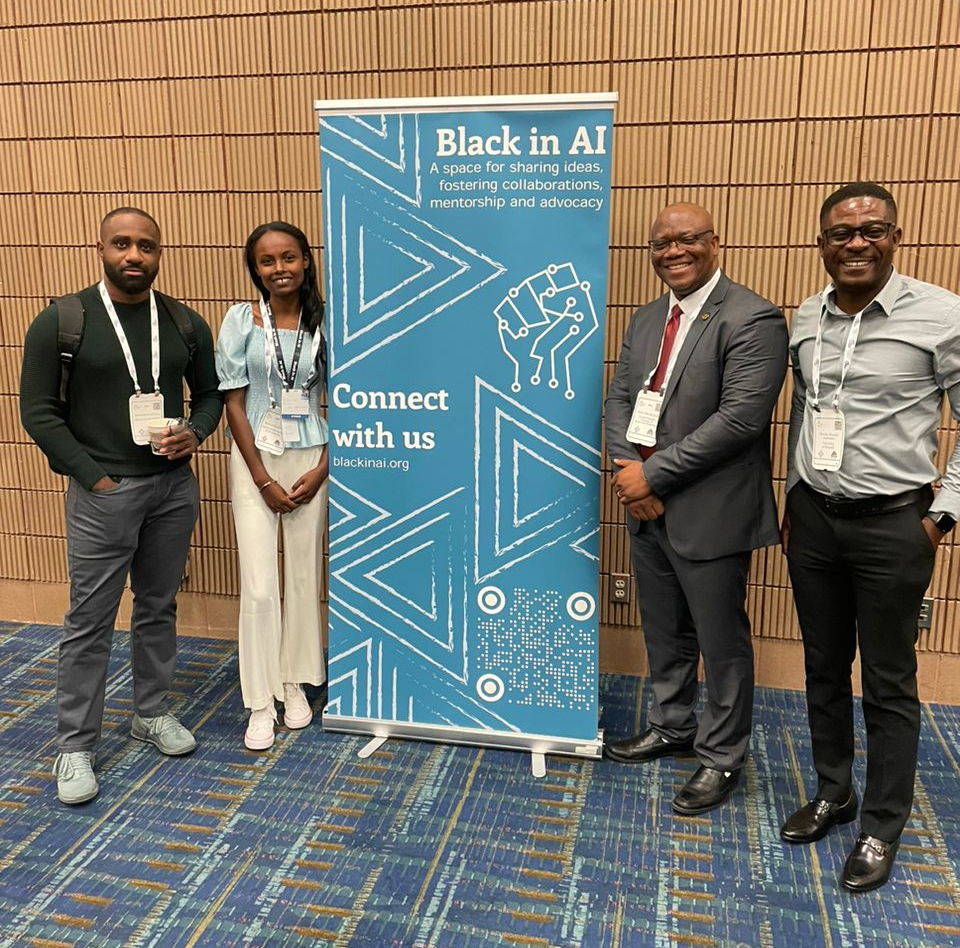Prof. Jerry John Kponyo, Principal Investigator and Scientific Director, RAIL, gave a keynote at the 7th Annual Black in AI workshop on the 11th of December, 2023, in New Orleans. He made a case for Afrocentric Datasets with reflections from the Responsible AI Lab (RAIL).

He said the 4th Industrial Revolution is a digital revolution, and key sectors of the economy can be transformed by applying AI interventions in Health, Education, Food production, Transportation, Public Service and aiding the differently abled.
He divulged that in driving the frontiers of the digital revolution, RAIL has a mandate to nurture local talent with a focus on women in technology in response to the capacity requirement of AI in the subregion.
Addressing the importance of responsible AI, He said it is essential to harness the positives of AI and guard against the negatives.
“Responsible AI solutions must possess qualities like fairness, accountability, equity, data and privacy, transparency, social and environmental dimension and be safe to use.”
Speaking on bridging the AI gap in access and affordability, he stated that AI solutions must be made affordable and accessible globally to foster equitable development and prevent the widening of the existing socio-economic gaps.
“We should not be driven by profits when deploying AI solutions but should consider the public good of AI solutions and make them accessible to the underprivileged. AI solutions can potentially revolutionise various industries, but their high cost and lack of accessibility can limit their impact. It is important to explore innovative ways to reduce the cost of AI solutions while maintaining their effectiveness and reliability. This ensures that AI benefits everyone and not the privileged few.”
He asserted that governments, donor organisations and institutions must collaborate to gather Afrocentric datasets to train AI models to solve African problems.

“The need for Afrocentric datasets is to ensure fair and accurate predictions and solutions that work for Africans. This also prevents social biases and provides trustworthiness and confidence in the AI models,” he said.
Prof. Kponyo highlighted some ongoing RAIL initiatives with Afrocentric datasets. He mentioned the Plant Disease Detector, which detects and provides remedies to crop diseases in the native languages of farmers, the Rare Disease Detector, AI-powered Assistive Devices for the differently abled and the FACETS (https://facets.netlify.app/) Framework.
He encouraged the use of the FACETS (https://facets.netlify.app/) framework, a quantitative approach to measuring responsible AI.
